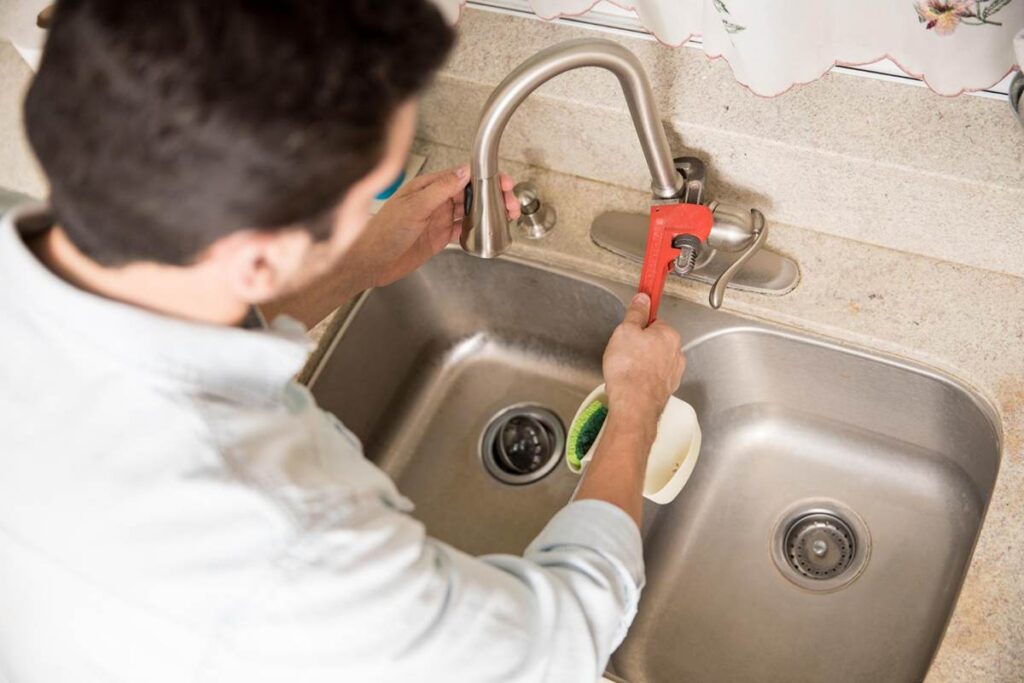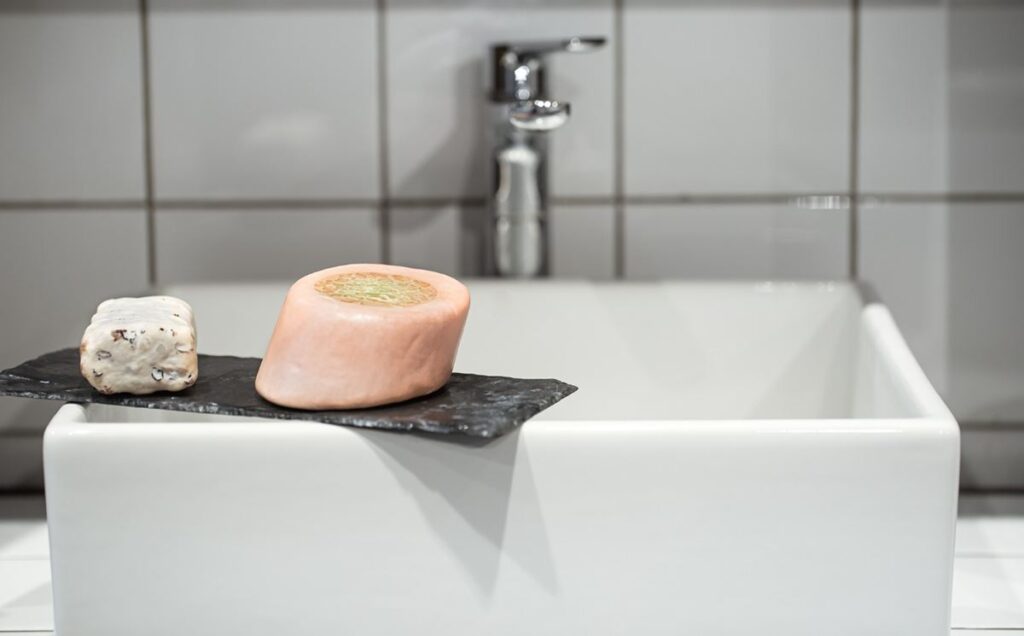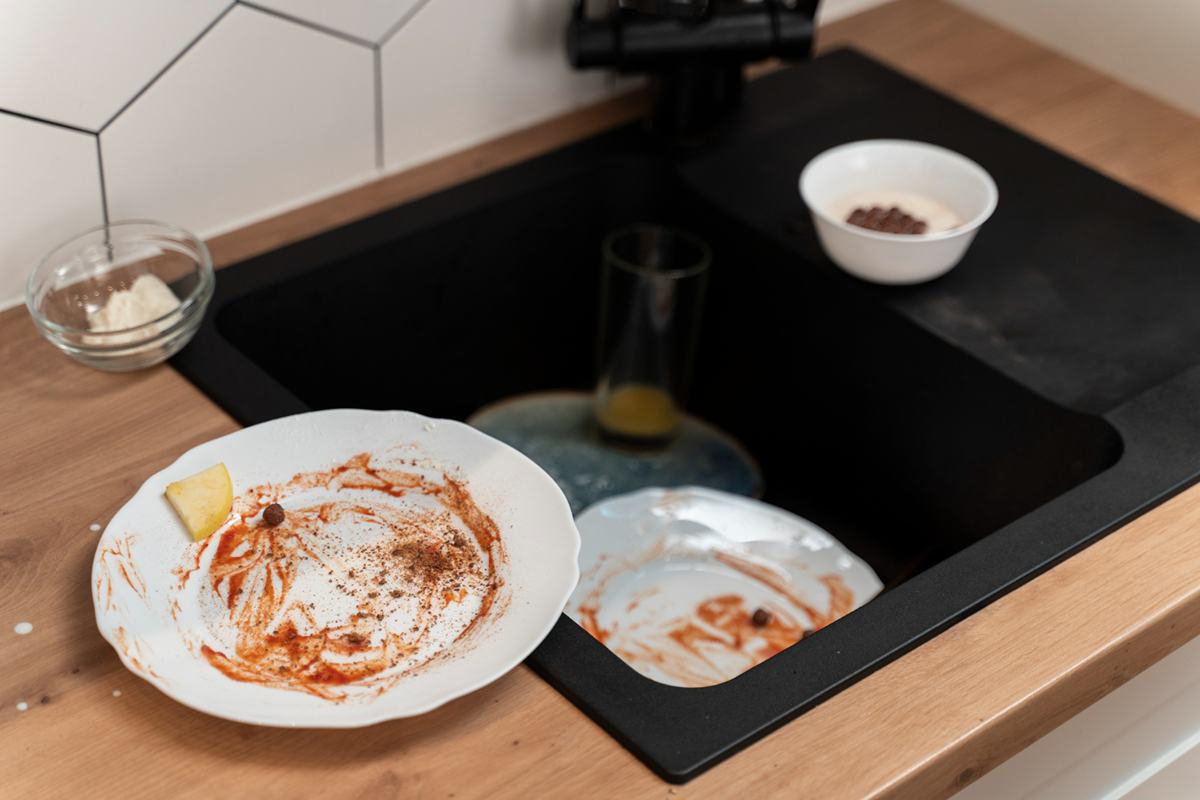Is your kitchen or bathroom starting to smell bad, but you can’t figure out why? The problem might be hiding in your sink! A smelly sink drain can make your whole home feel dirty, even if everything else is clean. But don’t worry—learning how to clean a smelly sink drain is easier than you think. In this article, we’ll show you quick, simple ways to fix the stink using safe, natural things like baking soda and vinegar. You’ll also learn how to stop the bad smell from coming back. Keep reading to make your sink smell fresh again—without calling a plumber!
Why Does My Sink Drain Smell?
If your sink drain smells bad, you’re not alone. Many people deal with bad drain odors, especially in the kitchen or bathroom. But what causes it? Most of the time, it’s due to grease buildup, old food scraps, or soap scum that gets stuck in the pipes. Over time, this gunk grows bacteria and mold, which makes the sink stink.
Sometimes, the drain smells like sewage, which is even worse. This can happen if there’s a clogged kitchen sink, a blocked drain pipe, or a problem with the vent system that lets air flow through your plumbing. When air gets trapped, the bad smells come back up through your drain.
A smelly sink is not just gross—it can also affect your health. Dirty drains can carry germs that may cause allergies or make the air feel heavy and unhealthy. That’s why it’s important to clean your sink drain the right way and keep it fresh.
Kitchen Sink Drain Smells Bad – What Can You Do?
When your kitchen sink drain smells bad, it can ruin the entire feel of your home. But the good news? You can fix it with some quick and easy steps—no plumber needed!
One of the fastest ways to remove smell from a kitchen sink is by using boiling water. Hot water can help melt and flush away food scraps and grease stuck in your pipes.
Another great natural fix is using baking soda and vinegar. These two simple ingredients bubble up and break down smelly buildup inside the drain. They’re safe, cheap, and they work well.
You can also try lemon juice or even lemon peels. They smell great and help clean the drain too. If the smell is still there after trying natural options, you can use a mild commercial drain cleaner—just make sure it’s safe for your pipes and the environment.
Quick Step-by-Step Fixes:
- Boil water and pour it down the drain.
- Pour 1/2 cup of baking soda into the drain.
- Add 1 cup of white vinegar right after the baking soda.
- Let it bubble for 10–15 minutes.
- Flush again with hot water.
Effective Long-Term Solutions for a Smelly Sink Drain

Fixing the smell once is helpful—but to stop it from coming back, you need to clean your drain regularly. Routine cleaning with simple ingredients like baking soda, vinegar, and lemon juice can keep your pipes fresh. Try doing this once a week to prevent bad drain odors from building up.
For deeper cleaning, you may need to remove any blockages inside the drain. A drain snake or plunger works great for pulling out food bits, hair, or gunk stuck in the pipes. If you have a garbage disposal, don’t forget to clean it too. You can do this by tossing in some ice cubes, salt, and lemon peels, then running cold water and turning on the disposal. This scrubs and freshens it naturally.
If the smell still comes back, check your plumbing. Cleaning the P-trap (the curved pipe under the sink) can help. Sometimes water gets stuck or dries out, allowing sewage smells to rise up. Installing or fixing a drain trap can also stop bad air from entering your kitchen or bathroom.
Drain Smells Like Sewage – What Does It Mean?
If your drain smells like sewage, it may be more than just leftover food. A strong sewer-like smell often means there’s a blockage in the vent system, which helps air flow through your plumbing. When that vent gets blocked, sewer gases can’t escape properly—and they come up through your sink instead.
Sometimes, the smell might be caused by cracks in the pipes, a dry P-trap, or other hidden plumbing issues. These problems let sewer gases leak into your home, which isn’t just unpleasant—it can be unhealthy.
If the smell doesn’t go away after trying DIY solutions like baking soda, vinegar, and boiling water, it’s time to call a professional plumber. Trying to fix complex plumbing on your own can make it worse.
Expert tip: Regular maintenance like flushing your drain weekly and cleaning your garbage disposal can prevent this issue in the first place.
Preventing Future Sink Drain Smells

The best way to avoid bad smells is to stop them before they start. Simple daily habits can keep your sink smelling fresh and your drains clear. First, always run water regularly, especially in guest bathrooms or sinks you don’t use often. This keeps the P-trap full and blocks sewer gases. Also, never pour grease, oil, or food scraps down the drain—they stick to the pipes and start to rot.
Use a strainer in your sink to catch food bits and stop them from going down the drain. Clean it out after every meal.
Create a regular cleaning schedule—once a week or every two weeks. Just pour baking soda and vinegar, let it bubble, then flush with hot water. It’s simple and eco-friendly, and it keeps your drain clear without harsh chemicals.
Be mindful of what goes down your drain. Avoid coffee grounds, eggshells, and fibrous foods like celery or potato peels.
Frequently Asked Questions
1. How do I get rid of the smell in my sink drain?
You can get rid of the smell by pouring baking soda and vinegar down the drain, letting it sit for 15 minutes, and then flushing it with hot water. This natural method helps break down grease and remove bad drain odors.
2. What is the best cleaner for smelly drains?
The best cleaner is a mix of baking soda, vinegar, and hot water. For stubborn smells, enzyme-based cleaners are also effective and safe for pipes.
3. Does pouring vinegar down the drain make it smell better?
Yes! Vinegar is a natural deodorizer that kills bacteria and removes buildup. When used with baking soda, it works even better for cleaning smelly sink drains.
4. What is the best homemade drain cleaner?
A mixture of 1/2 cup baking soda and 1/2 cup vinegar followed by hot water is a great homemade cleaner. It’s safe, cheap, and eco-friendly.
5. How to fix a smelly floor drain?
Flush the drain with hot water and vinegar to remove any buildup. If the smell remains, clean the trap or pour water to refill the dry P-trap.
6. Why does my kitchen sink smell even after cleaning?
If smells come back quickly, the P-trap might be dirty or dry, or there could be buildup deeper in the pipes. Try deep cleaning or check for hidden clogs.
7. Can lemon remove sink drain odors?
Yes, lemon juice or lemon peels can freshen the drain naturally. Their citric acid helps break down grease and leaves a pleasant smell.
8. How often should I clean my sink drain?
For best results, clean your sink drain weekly with baking soda and vinegar. This prevents bad smells and keeps your pipes running smoothly.
Conclusion
A smelly sink drain can make your whole kitchen feel dirty—even if everything else is spotless. That’s why it’s so important to keep your drains clean and fresh. How to clean a smelly sink drain isn’t complicated; it just takes a few simple steps and a little regular care.
From using baking soda and vinegar to deep cleaning the P-trap or garbage disposal, these easy fixes and habits can help you avoid bad odors and plumbing issues. Natural methods work great and are safe for your pipes too.










